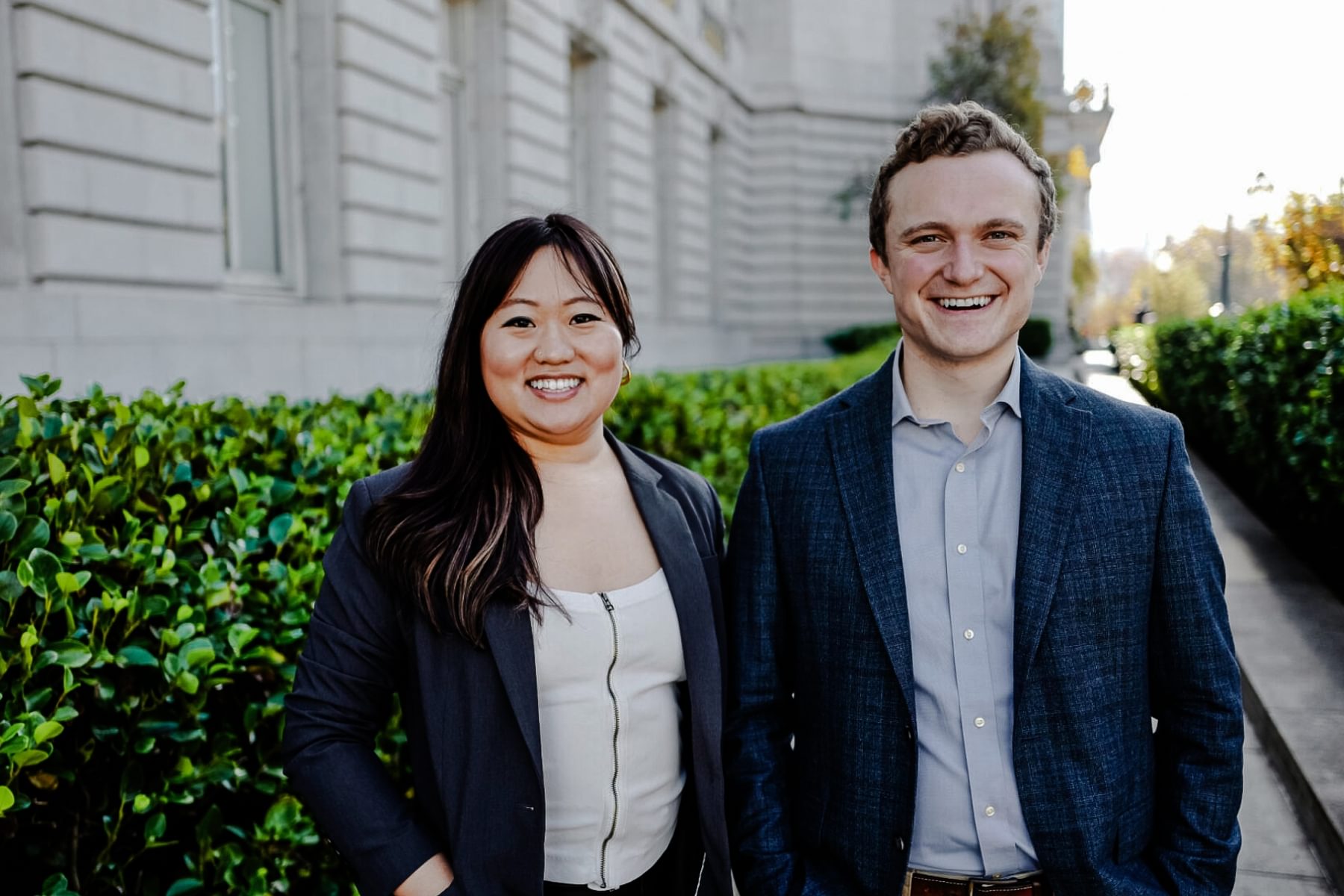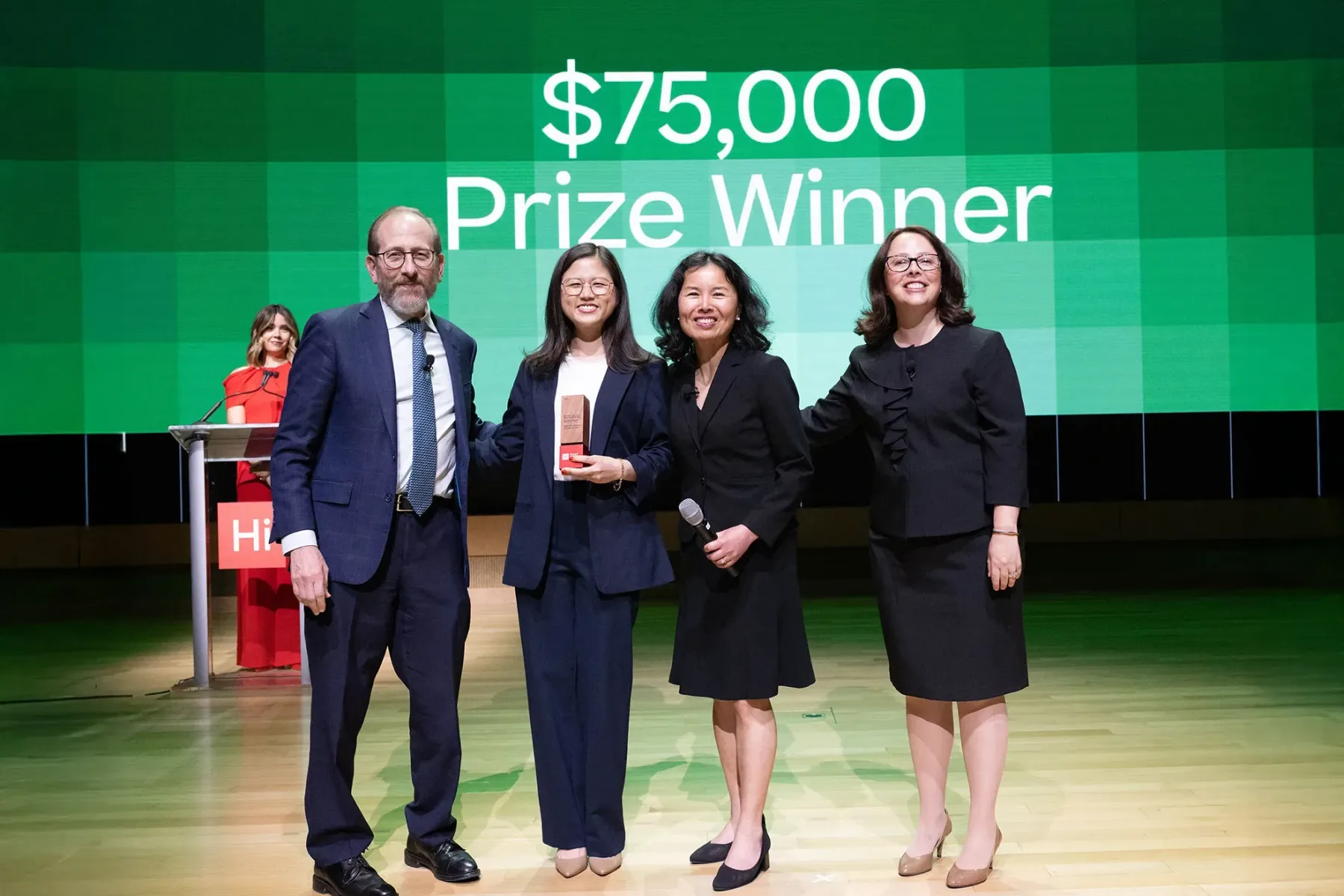From social impact to healthcare to fintech and consumer goods, women leaders notice different needs in their communities and come up with different solutions. While women entrepreneurs, particularly women of color, face unique challenges with regard to financing, they are nevertheless transforming industries by pursuing bold ideas and solving real customer problems.
Harvard Innovation Labs is proud to say that in 2019, approximately 50% of venture teams had at least one woman founder. Moreover, of the 275 startups at i-Labs that have secured venture capital funding to date, approximately 50% also had at least one woman founder.
In May 2020, we asked some of the women founders in our ecosystem to tell us how they believe women are changing the game. Read some answers below and learn even more about them on our social channels under the hashtag #womenledwednesdays.
Read edition two (Equity and Justice in Venture Creation), edition three (Surfing the Highs and Lows of Entrepreneurship), and edition four (Black Founders’ Voices and Perspectives).
Avis Atkins: Microsprout
Avis Atkins co-founded the financial company Microsprout with Matt McCalpin to help young people and their parents leverage community resources to save for college and take on less debt. Both passionate about increasing access to higher education, Atkins and McCalpin have participated in Harvard’s New Venture Competition and the President’s Innovation Challenge. Since working on their venture at Harvard Innovations Labs, Atkins says they’ve made tremendous progress on their product and are now pitching to virtual audiences.
How are women changing business and/or social impact?
“The unique perspective and insight that women founders have is unparalleled. Many industries are serving a broader number of customers because of women founders. I can’t wait to see how many amazing companies are led by women founders in the next decade.”

Nicole Black: Beacon Biomimetics
Nicole Black is Co-founder of Beacon Biomimetics, a company that makes PhonoGrafts, novel devices 3D-printed from biodegradable ink, which repair damaged eardrums and passively enhance sound conduction. Their goals? 1) achieve a minimally invasive design, 2) improve hearing outcomes, and 3) decrease the time necessary for wound healing. All of these things will improve patient care and decrease patient morbidity. Beacon Biomimetics hopes to branch into engineering other tissue grafts, particularly in the ear, nose, and throat (ENT) space.
In the last 3 months, Black and her team have spoken with three venture capital firms and submitted a provisional patent on the novel material they use for 3D printing. Black also received the Gliklich Healthcare Innovation Fellowship for 2020, which will let her advance the translational arms of PhonoGraft after defending her PhD.
How are women changing business and/or social impact?
“Women emotionally connect with their teams as well as their customer base. They tend to have strong empathy, allowing them to make responsible and fair decisions. This can also lead to more creative and effective solutions… Women typically also comprise 50% of a company’s potential customers. Since women can have distinct needs and perspectives, having an all-male team means you may overlook key elements of a potential product.”

Jean Jung: DreamworldVR
Jean Jung is Co-founder of DreamworldVR, a nonprofit focused on improving the lives of pediatric patients using immersive virtual reality technology. In this context, the purpose of VR is to help patients combat loneliness and develop emotional and social intelligence. In April, DreamworldVR became a finalist in HBS’s New Venture Competition. Since the pandemic, Jung says, Dreamworld has gone completely virtual and has been registering 500% patient counts.
How are women changing business and/or social impact?
“I’ve always been on the minority side as an Asian, a female, a patient as a kid, a female developer, and a founder. But I believe these experiences actually help me understand vulnerable populations and genuinely care for and put my customers’ needs first.”

Roshni Mehta: Hibiscus Monkey
Roshni Mehta is Co-founder of Hibiscus Monkey, which relies on traditional ethnic care to create new-age products that shatter stereotypes around women’s beauty, personal care, and menstrual needs in India. As creator of all-natural (100% chemical free, all-natural, vegan) products inspired by her grandma’s recipes, Mehta has been selling through a direct-to-consumer model via Instagram until being selected by Amazon Launchpad to create a customized storefront. Mehta encourages Indian millennial women to be unapologetic about their self-care (#MeFirst), and her products address specific needs for the Indian market while promoting “slow-care” (strengthening the body from the core versus short-term superficial quick fixes).
In February, Mehta was among 23 women entrepreneurs awarded at the BW Businessworld Women Entrepreneurship Summit in New Delhi, where she won the “Disrupt Young Women Entrepreneur Award” for “leading by example in creating a sustainable business.” Learn more.
How are women founders changing business and/or social impact?
“As a millennial Indian woman, I speak directly to consumers and forge a strong emotional connection that goes beyond transaction. Our campaigns are honest, edgy, and bold and focus on bringing us together over our collective experience of womanhood. Hibiscus Monkey is a brand by women for women and we don’t shy away from that… My long-term plan is to set up our manufacturing in rural India (where we source our ingredients) to generate sustainable livelihoods among low-income individuals. I want Hibiscus Monkey to be a part of India’s growth story.”

Julia Cole: June Motherhood
Julia Cole is Co-founder and COO of June Motherhood, a digital maternal care company that offers live, expert-led programs and a close-knit community for prenatal and postpartum families. As a virtual, group-based service, June’s vision is to be the number one resource for families as they navigate pregnancy, birth, postpartum, and beyond. Recently accepted into a VC accelerator and featured by Female Founder Fund and cheddar tv, June recently launched virtual classes with 300+ participants. June is unique in that it aims to support the whole family, which is why the team is building out their offerings to include partner prep and more. Learn more.
How are women founders changing business and/or social impact?
“We see women founders changing the business landscape every day, innovating in areas that historically have not been given attention. For example, [billions of dollars have been invested in Femtech] and countless female leaders are paving the way for a more empowered future for women.”






